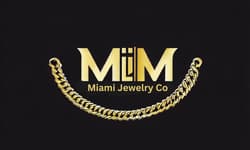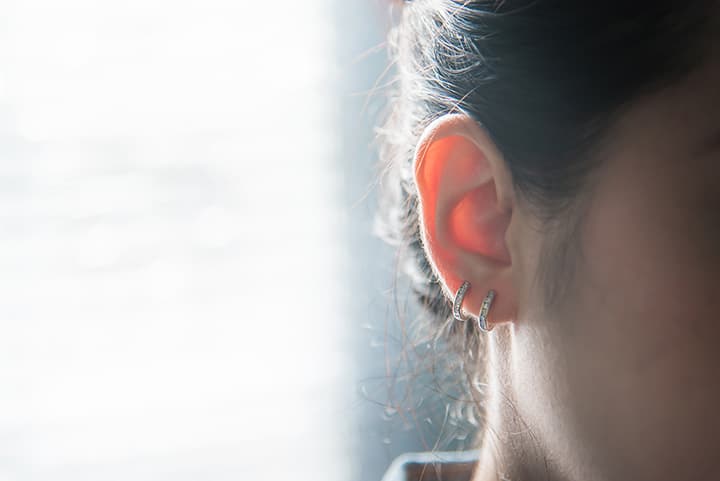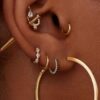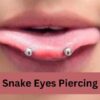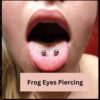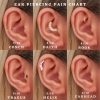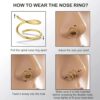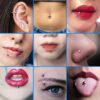Piercing
How to Choose the Best Piercing Shop and Piercer For Your Needs
Piercing is a form of body modification that involves creating holes in the skin or cartilage to insert jewelry or other adornments. Piercing can be done for aesthetic, cultural, religious, or personal reasons. However, piercing also carries some risks, such as infection, bleeding, scarring, allergic reactions, nerve damage, and rejection.
If you’ve found yourself scrolling through endless online reviews or asking friends for recommendations, only to feel more confused, you’re not alone. That’s why we’ve put together this comprehensive guide. Consider it your one-stop resource for choosing the best piercing shop and piercer for your unique needs.
In this guide, we’ll dive into:
- What to look for in a piercing studio—because your health and safety are non-negotiable.
- The power of word-of-mouth recommendations—uncover how personal experiences can give you insights that the internet can’t.
- How to prepare for your piercing appointment—so you can walk in confident and walk out thrilled.
- How to care for your new piercing—because proper aftercare is just as crucial as the piercing itself.
We’ll also tackle some of the most frequently asked questions about piercings. This guide aims to turn your apprehension into action, making the process of getting a piercing safe, smooth, and satisfying. So let’s get started, shall we?
Contents
What to look for in a piercing studio
A piercing studio is the place where you will get your piercing done. Therefore, it is very important to choose a reputable and professional piercing studio that can provide you with a safe and hygienic piercing experience. Here are some aspects that you should look for in a piercing studio:
License and regulation
A piercing studio should have a license to operate and follow the local health regulations and standards. A license does not necessarily mean that the piercer is well-trained or experienced, but it indicates that the studio has met the minimum requirements to operate legally. You can check the license of the studio online or by visiting the local health department.
The local health regulations and standards may vary from place to place, but they usually cover aspects such as:
- The qualifications and training of the piercers
- The hygiene and sanitation of the premises, staff, tools, and equipment
- The record-keeping and documentation of the piercing procedures
- The consent and age verification of the clients
- The disposal and management of waste and sharps
You should ask the studio if they comply with these regulations and standards, and if they have any certificates or inspections to prove it.
Cleanliness and maintenance
A piercing studio should also be clean and well-maintained. The premises and the staff should be noticeably hygienic and tidy. Smoking or drinking alcohol should never take place in the studio. The studio should have separate zones for different purposes, such as a retail counter, a waiting area, a piercing room, a sterilization room, and a public bathroom. The piercing room should have bright lighting and good ventilation, and it should not be used for anything else except piercing. The sterilization room should be inaccessible to the public and it should contain an autoclave sterilizer.
You should inspect the studio for any signs of dirt, dust, clutter, stains, odors, or pests. You should also observe how the staff handles the tools and equipment, such as:
- Wearing disposable gloves when touching your skin or jewelry
- Opening new needles from sealed packages in front of you
- Using sterile tools and jewelry that are either pre-packaged or sterilized in an autoclave
- Disposing of used needles and other sharps in a puncture-proof container
- Cleaning and disinfecting the work surfaces and equipment after each use
You should also ask the studio how often they clean their premises, tools, and equipment, and what methods they use.
Related: How to Put in Double Hoop Nose Ring
Sterilization process
An autoclave sterilizer is a device that uses high-pressure steam to kill all microorganisms on the tools and equipment used for piercing. An autoclave is essential for ensuring the safety and cleanliness of the piercing procedure. You should ask the studio if they have an autoclave and if they perform regular spore tests to verify its effectiveness. Spore tests are biological indicators that measure the ability of the autoclave to kill dangerous organisms and viruses. The results of these tests should clearly state “pass” and the studio should be willing to show them to you.
You should also ask the studio how they store their tools and equipment after sterilization. They should use sealed pouches or containers that indicate the date of sterilization and expiration. They should also keep them in a dry and cool place away from sunlight or heat sources. They should also avoid touching them with bare hands or exposing them to air until they are ready to use them.
Customer service
A piercing studio should also provide you with excellent customer service. The staff should be friendly, respectful, helpful, and attentive. They should greet you warmly, answer your questions patiently, listen to your concerns attentively, and address your issues promptly. They should also respect your privacy and dignity by covering any areas that are not being pierced. They should also make you feel comfortable and relaxed by talking to you calmly and reassuringly. They should also be attentive to your pain tolerance and stop or pause if you need a break.
You should also check how the studio handles appointments, payments, refunds, complaints, or emergencies. They should have a clear and fair policy for each of these situations. They should also have a contact number or email address where you can reach them if you have any questions or problems after your piercing.
Reputation and reviews
A piercing studio should also have a good reputation and positive reviews from previous customers. You can ask your friends, family members, co-workers, or acquaintances who have had piercings done before for their recommendations. You can also check online reviews, ratings, testimonials, or feedback from previous customers of different studios or piercers. You can also visit the websites or social media pages of the studios or piercers you are interested in and look at their portfolios, credentials, awards, or certifications.
You should look for honest and unbiased opinions from people who have had similar piercings as you. You should also look for consistent and reliable feedback from multiple sources. You should also pay attention to how the studio or piercer responds to negative or constructive comments, as this can indicate their professionalism and attitude. You should also avoid fake or paid reviews, as they can mislead you or deceive you.
What to look for in a Piercer
Choosing a piercer is a critical decision that impacts not only the aesthetics of your piercing but also your overall health and safety. It’s crucial to be well-informed about what to look for when selecting a piercer to ensure a safe and pleasant experience. Below are key areas to consider:
Experience and Training
A piercer is the person who performs the piercing on your body. A piercer should have adequate training and experience in performing the type of piercing you want. Piercing is a hands-on profession that requires practical skills and knowledge. A piercer should ideally have completed a lengthy apprenticeship with a qualified mentor, or at least have received some formal education or certification in piercing. You should ask the piercer how long they have been piercing, how they learned, and what they do to keep their knowledge up-to-date.
Expertise in Anatomy and Technique
It’s not just about pushing a needle through the skin; a skilled piercer must be well-versed in human anatomy, aseptic technique, and the healing process. They should be able to assess whether your anatomy is suitable for the piercing you desire. Furthermore, they should be able to guide you through aftercare, potential risks, and complications, ensuring that you’re well-prepared for every stage of the process.
Jewelry Selection
A reputable piercer should offer advice on the best type, size, shape, and material for your jewelry. Different piercings require different types of jewelry, and a knowledgeable piercer can guide you through this crucial decision, ensuring that it complements both your anatomy and your personal style.
Professionalism and Hygiene
Good piercers adhere to high standards of professionalism and cleanliness. Look for piercers who use disposable gloves, sterile single-use needles, and autoclave-sterilized tools and jewelry. Avoid any establishment that uses a piercing gun, as these are often unsanitary and can cause tissue damage.
Communication and Consent
The piercer should clearly explain each step of the process, from the tools and techniques they’ll use to aftercare instructions. They should ask for your explicit consent before proceeding and make you feel comfortable enough to speak up if you need a break due to pain or discomfort.
Respect for Privacy and Comfort
Your comfort and dignity should be a priority for any piercer. They should take steps to ensure your privacy by covering areas not being pierced and creating a reassuring environment. Your piercer should talk to you in a calming manner, making you feel relaxed and at ease throughout the procedure.
How to find a good piercing studio and piercer
Selecting the right place and person for your piercing can be daunting, but it’s crucial for ensuring a safe, professional experience. From asking the right people for recommendations to doing your own research, there are various approaches to finding a reliable piercing studio and skilled piercer. Below are some guidelines to help you in your quest.
Word-of-Mouth Recommendations
One of the most reliable ways to find a quality piercing studio and skilled piercer is through word-of-mouth. Friends, family, co-workers, and acquaintances who have had piercings can offer valuable insights into the cleanliness, professionalism, and skill levels of specific studios and piercers. Personal experiences often provide a level of trust that online reviews cannot capture.
Online Reviews and Portfolios
In today’s digital age, the internet offers another layer of investigation. Checking online reviews, customer testimonials, and ratings can give you an idea of what to expect. Additionally, many piercers and studios have an online presence, including websites and social media platforms. Take the time to examine their portfolios, credentials, awards, and certifications to gauge their expertise and style.
Professional Affiliations: The Association of Professional Piercers (APP)
One of the most reputable resources in the piercing community is the Association of Professional Piercers (APP). As a non-profit organization, the APP sets the industry standard for safe, ethical piercing practices. An APP affiliation is often a good indicator of a piercer’s commitment to safety and professionalism.
APP Member Criteria and Ethics
Being an APP member involves more than just paying an annual fee. Members must adhere to the APP’s code of ethics, minimum jewelry standards, sterilization guidelines, and aftercare recommendations. Additionally, they are required to attend continuing education courses and seminars to keep up-to-date with the latest best practices in the piercing industry.
Using the APP’s Online Locator
The APP’s online locator tool can be a straightforward way to find a professional piercer near you who meets the organization’s stringent standards. By narrowing down your options to those listed in the APP directory, you are more likely to find a piercer who is dedicated to safe, ethical practices.
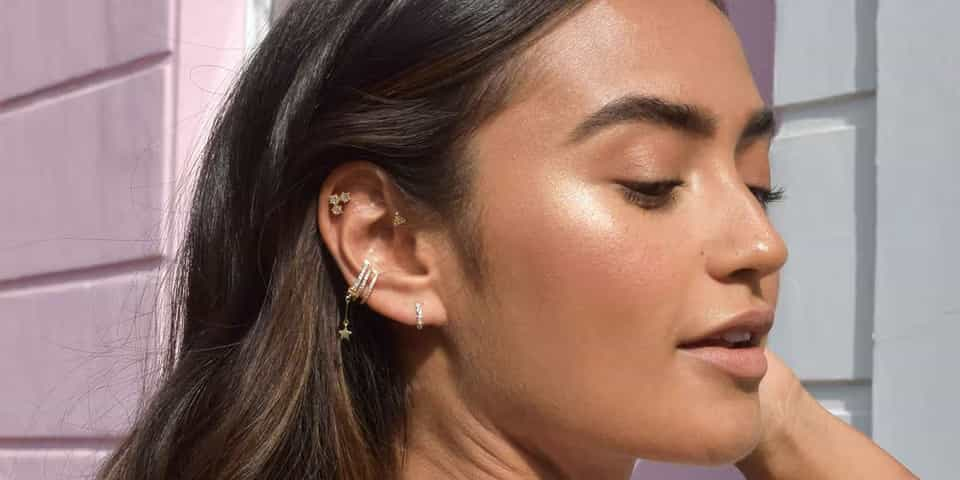
How to prepare for your piercing appointment
Once you have chosen a piercing studio and piercer, you need to prepare for your piercing appointment. Here are some tips on how to get ready for your piercing:
- Make sure you are healthy and well-rested. Avoid getting sick, drinking alcohol, taking drugs, or staying up late before your appointment. These factors can affect your immune system, blood circulation, and pain tolerance.
- Eat a balanced meal and drink plenty of water before your appointment. This will help you prevent low blood sugar, dehydration, or fainting during or after the piercing.
- Wear comfortable and loose clothing that will not interfere with the piercing area. For example, if you are getting a navel piercing, wear a shirt that can be lifted up easily. If you are getting an ear piercing, avoid wearing earrings or headphones.
- Bring a valid photo ID and proof of age. Most studios require you to be at least 18 years old to get a piercing without parental consent. Some studios may also require you to sign a consent form or waiver before the piercing.
- Bring a friend or family member with you for moral support. Having someone you trust by your side can help you feel more calm and confident during the piercing. However, avoid bringing too many people with you, as this can crowd the studio and distract the piercer.
- Ask any questions or voice any concerns you have before the piercing. The piercer should be able to answer your queries and address your issues in a clear and respectful manner. Do not hesitate to ask for clarification or explanation if you are unsure or confused about anything.
How to care for your piercing after the procedure
After the piercing is done, you need to follow the aftercare instructions given by your piercer. Proper aftercare is crucial for preventing infection, speeding up healing, and ensuring the best outcome for your piercing. Here are some general aftercare tips for most piercings:
- Wash your hands with soap and water before touching your piercing or jewelry.
- Clean your piercing twice a day with a saline solution or a mild soap and water. Gently rinse off any crusts or debris from the jewelry and the surrounding skin. Pat dry with a clean paper towel or air dry.
- Avoid touching, twisting, pulling, or playing with your jewelry unnecessarily. This can irritate the piercing site and delay healing.
- Avoid swimming, soaking, or submerging your piercing in water until it is fully healed. Water can contain bacteria, chemicals, or other contaminants that can cause infection or irritation.
- Avoid applying any creams, ointments, oils, makeup, or other products on or near your piercing until it is fully healed. These products can clog the piercing channel and interfere with healing.
- Avoid sleeping on or putting pressure on your piercing until it is fully healed. This can cause swelling, pain, migration, or rejection of the jewelry.
- Avoid changing or removing your jewelry until it is fully healed. This can damage the piercing channel and cause bleeding, infection, or closure of the hole.
- Eat a healthy diet and drink plenty of water to boost your immune system and promote healing.
- Monitor your piercing for any signs of infection, such as redness, swelling, pain, heat, pus, odor, fever, or chills. If you notice any of these symptoms, contact your piercer or a doctor immediately.
FAQs
How long does it take for a piercing to heal?
The healing time of a piercing depends on several factors, such as the type and location of the piercing, the quality and material of the jewelry, the aftercare regimen, and the individual’s health and lifestyle. Generally speaking, piercings heal from the outside in, meaning that they may look healed on the surface before they are fully healed internally.
How do I know if my piercer is good?
To determine if your piercer is skilled and reputable, consider the following factors:
- Certifications: Ensure the piercer has the necessary certifications and follows strict hygiene protocols.
- Experience: The piercer should have significant experience, and ideally specialization in the type of piercing you want.
- Portfolio: Ask to see a portfolio of their previous work; this can usually give you a good idea of their skill level.
- Reviews: Check online reviews and testimonials. Positive feedback from previous clients can be a strong indicator.
- Consultation: A good piercer will offer a consultation before the procedure to discuss options and any concerns you may have.
- Cleanliness: The studio should be clean, and the piercer should wear gloves and use sterilized equipment.
Where is the safest place to get a piercing?
The safest place to get a piercing is at a professional piercing studio with the following attributes:
- Certified: The studio should be certified by relevant health and safety authorities.
- Hygienic: Strict hygiene measures, including sterilization of equipment and a clean environment, should be evident.
- Experienced Staff: The piercers should be experienced and specialized in the type of piercing you’re interested in.
- Aftercare Guidelines: The studio should provide clear aftercare instructions to avoid complications.
- Recommendations: A well-recommended studio from trusted sources is often a safer choice.
How do you know if a piercing is professional?
A professional piercing can be identified by:
- Cleanliness: The use of sterile equipment, disposable needles, and gloves.
- Detailed Consultation: Providing you with a detailed consultation before proceeding.
- Certification: Evidence of required certifications and training.
- Clear Aftercare: Provides explicit aftercare instructions and offers follow-up checks.
- Quality Jewelry: Uses high-quality, hypoallergenic jewelry appropriate for new piercings.
How do I choose a piercing?
Choosing a piercing involves several considerations:
- Personal Style: Think about how the piercing will complement your style and features.
- Pain Threshold: Some areas are more painful to pierce than others. Consider your pain tolerance level.
- Lifestyle: Some piercings may not be suitable for certain activities or work environments.
- Healing Time: Different piercings have different healing times; make sure you can commit to the aftercare.
- Consult a Professional: Speak to an experienced piercer for personalized advice tailored to your anatomy and aesthetic preferences.
Conclusion
Piercing is a personal choice that can enhance your appearance and express your individuality. However, piercing also involves some risks that can be minimized by choosing a reputable and professional piercing studio and piercer who can perform the procedure safely and hygienically. You should also prepare for your piercing appointment and follow the aftercare instructions carefully to ensure a smooth and successful healing process.
Related:

Camila Luna is a passionate jewelry enthusiast and content creator at Miami Jewelry Co. With a focus on providing high-quality, Miami-style jewelry, Camila and her team specialize in a wide range of jewelry that includes bracelets, necklaces, earrings, and more
